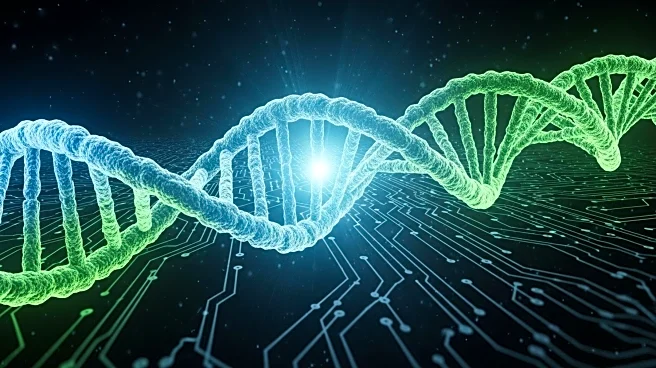What is the story about?
What's Happening?
Artificial intelligence (AI) is increasingly being integrated into oncology to enhance biomarker discovery and precision medicine. A survey conducted by ICON in 2024 revealed that while only 16% of oncology researchers currently use AI for biomarker detection, nearly half see it as a key area for accelerating drug development. AI's ability to analyze large datasets allows for the identification of complex associations in tumor biology, which traditional methods may miss. Machine learning (ML) and deep learning (DL) are particularly promising, with DL being used to uncover genetic markers linked to cancer survival. AI models are also being developed to integrate data across various modalities, such as molecular characterization and imaging, to create meta-biomarkers that predict treatment responses more accurately.
Why It's Important?
The integration of AI in oncology is significant as it promises to improve patient selection for treatments and enhance the development of precision medicines. AI-driven biomarker discovery can lead to more effective therapies by identifying patients who are most likely to benefit from specific treatments. This is crucial in fields like immuno-oncology, where clinical benefits are observed only in certain patient subsets. However, challenges remain, including the need for large, diverse datasets to train AI models and the 'black box' nature of AI algorithms, which can hinder regulatory acceptance. Overcoming these obstacles could transform oncology therapeutics, offering better outcomes for patients.
What's Next?
Future directions in AI-driven oncology include the continued development of multimodal integration models and efforts to address challenges such as data quality and algorithm transparency. AI's role in immuno-oncology is expected to grow, with ongoing research into predictive biomarkers using genomics and radiomics. Developers must focus on creating generalizable AI tools that can be validated for clinical use, requiring substantial evidence from large-scale trials. As AI technology evolves, it is poised to play a critical role in advancing precision medicine and improving therapeutic strategies in oncology.
Beyond the Headlines
The ethical implications of AI in healthcare, particularly in oncology, are profound. The 'black box' nature of AI algorithms raises concerns about transparency and accountability in clinical decision-making. Additionally, the reliance on AI for biomarker discovery necessitates careful consideration of data privacy and security, especially given the sensitive nature of genetic information. As AI becomes more integrated into healthcare, stakeholders must address these ethical challenges to ensure that AI-driven solutions are both effective and ethically sound.
















